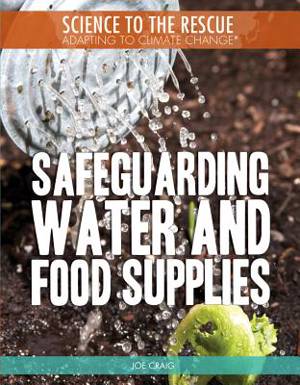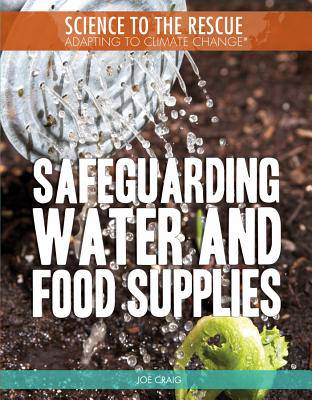
Bedankt voor het vertrouwen het afgelopen jaar! Om jou te bedanken bieden we GRATIS verzending (in België) aan op alles gedurende de hele maand januari.
- Afhalen na 1 uur in een winkel met voorraad
- In januari gratis thuislevering in België
- Ruim aanbod met 7 miljoen producten
Bedankt voor het vertrouwen het afgelopen jaar! Om jou te bedanken bieden we GRATIS verzending (in België) aan op alles gedurende de hele maand januari.
- Afhalen na 1 uur in een winkel met voorraad
- In januari gratis thuislevering in België
- Ruim aanbod met 7 miljoen producten
Zoeken
Omschrijving
Malnutrition due to hunger is the number one risk to human health worldwide--greater than malaria, AIDS, and tuberculosis combined. Readers learn how, worldwide, 70 percent of all freshwater is used for agriculture as well as many other facts. During a drought, people can't get access to water, and food production suffers. One billion people in the world do not have access to safe water. Half of the world's hospitalizations are because of water-related diseases. Approximately one and a half million children die every year from water-borne diseases. Food production and water supplies are inseparably linked to the climate, and the Earth's climate is changing. Droughts used to occur every six to eight years in East Africa, but now they occur every one or two years. The average temperature in the United States has risen 2° F in the past 50 years, and it continues to rise. The coming changes are threatening our food and water supplies--higher temperatures and unpredictable rainfall will cause more drought and famine. Global stability and millions of lives are at stake--and we're responsible. Human activities like industry, agriculture, transportation, and deforestation are causing global warming and climate change. The brightest minds are working on ways to slow the effects of climate change, limit its impact, and adapt to the unavoidable changes that are on the way. International cooperation has made it possible to begin saving different seed types in the Svalbard Global Seed Vault in Svalbard, Norway, as a final safety net against global famine and food extinction. As of May 2010, the vault held samples of 526,000 unique crop varieties. Engineers are also perfecting methods to conserve water, such as special water tanks that harvest rain. And there are many promising innovations just around the corner, like artificial trees that absorb carbon from the atmosphere. Various cutting-edge green energy and construction, geoengineering, bioengineering, agricultural, hydrological, and conservation technologies and practices are discussed, as are the latest government regulations and international treaties and initiatives. What the reader can do to support and further these efforts at home, school, and around town are is also outlined in this beneficial resource. All of these and many more promising technologies, intriguing breakthroughs, and proactive strategies are examined in this volume, which ultimately provides readers with a sense of hope, cautious optimism, and an urgent call to arms, and it continues to rise.
Specificaties
Betrokkenen
- Auteur(s):
- Uitgeverij:
Inhoud
- Aantal bladzijden:
- 64
- Taal:
- Engels
- Reeks:
Eigenschappen
- Productcode (EAN):
- 9781448868513
- Verschijningsdatum:
- 30/07/2012
- Uitvoering:
- Hardcover
- Formaat:
- Bibliotheekbinding
- Afmetingen:
- 165 mm x 231 mm
- Gewicht:
- 272 g

Alleen bij Standaard Boekhandel
+ 113 punten op je klantenkaart van Standaard Boekhandel
Beoordelingen
We publiceren alleen reviews die voldoen aan de voorwaarden voor reviews. Bekijk onze voorwaarden voor reviews.









